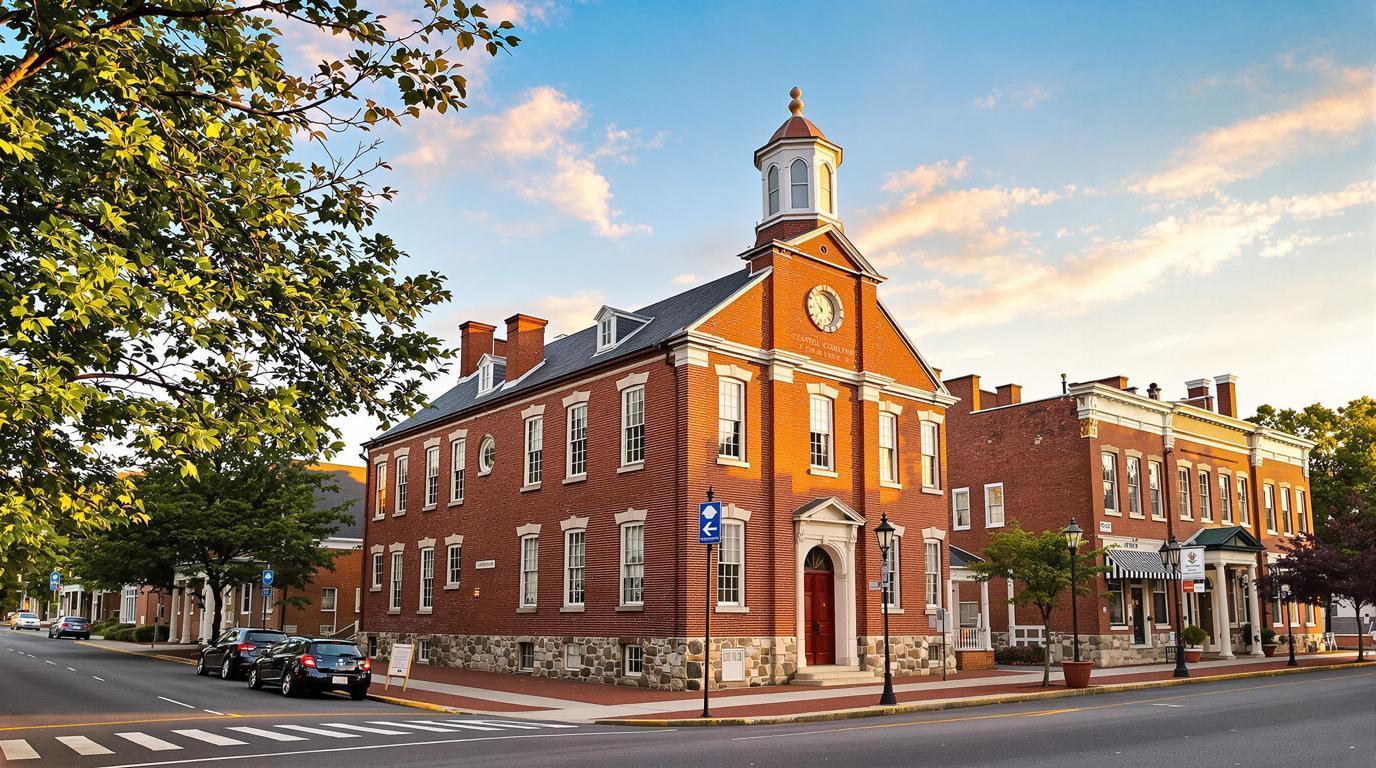Last summer, I stumbled upon something that stopped me cold in the Shenandoah Valley. While photographing colonial architecture near Harpers Ferry, a local historian mentioned Charles Town—not the tourist-packed Charleston, but a quiet West Virginia town that most travelers speed past on their way to more famous destinations.
What I discovered in this 7,672-resident community completely changed how I view authentic American colonial heritage. Founded in 1786 by Charles Washington—yes, George’s youngest brother—this unassuming county seat sits at 512 feet elevation, quietly preserving stories that shaped our nation while Williamsburg drowns in tour buses and gift shops.
The difference hit me immediately. Where Williamsburg feels like a colonial theme park, Charles Town breathes with genuine history. You can walk these streets without fighting crowds, touch original brick walls without barriers, and actually hear the stories locals have been preserving for generations.
The Washington family secret that history books overlooked
Charles Washington’s authentic colonial legacy
Charles Washington didn’t just slap his name on this town and disappear. He lived here, built his estate “Happy Retreat” here, and created a community that reflected his family’s values without the political spotlight that consumed his famous brother. The Classical Revival architecture you’ll find scattered throughout downtown tells the story of a man who wanted to build something lasting, not just profitable. Local historians will tell you that Charles chose this spot in the lower Shenandoah Valley specifically for its elevation advantage—those 512 feet provide natural cooling that made summer living bearable long before air conditioning.
The trial that changed American history
Here’s what truly sets Charles Town apart from every other colonial destination: this is where John Brown faced trial in 1859. The courthouse where his fate was decided still stands, and walking through those doors connects you directly to the moment when America’s slavery debate reached its boiling point. Unlike other Civil War sites packed with tourists, you can stand in that courtroom and feel the weight of history without someone selling you a souvenir.
Hidden authenticity that defies mass tourism
The Old Opera House that locals actually use
While Williamsburg’s buildings serve as museums, Charles Town’s 1910 Old Opera House still hosts live performances. I watched a community theater production there last fall, surrounded by residents who’ve been attending shows in that same venue for decades. The brick facade and original interior details haven’t been sanitized for tourists—they’ve been preserved by people who actually use the space.
Downtown streets where history lives
The commercial district along Washington Street showcases authentic 19th-century brick architecture without the reconstructed feel of bigger tourist towns. These buildings house real businesses serving real residents, not just shops selling colonial trinkets. Like other authentic small towns I’ve discovered, Charles Town’s historic character emerges from daily life, not preservation efforts.
The exclusive experience locals don’t advertise
Major Martin Delany’s birthplace story
Charles Town quietly holds another significant piece of American history—it’s the birthplace of Major Martin Delany, one of the first African-American field officers in the Civil War. His story intertwines with John Brown’s in ways that reveal the complex racial dynamics of this border region. Local historians share these connections freely, but you won’t find tour buses stopping at the historical markers.
Proximity advantages without the crowds
Positioned just 73 miles from Washington D.C., Charles Town offers colonial heritage exploration without the scheduling hassles of Virginia’s more famous destinations. Similar to other overlooked colonial towns, it provides authentic experiences within easy reach of major metropolitan areas.
Planning your authentic colonial discovery
Travel Note: The humid subtropical climate here means July temperatures hover around 75°F with valley breezes—noticeably cooler than the sweltering heat that makes Williamsburg uncomfortable during peak summer months.
Visit during weekdays when the courthouse and historic sites feel most authentic. Local historians at the Jefferson County Museum provide context that brings the Washington family story to life without the rehearsed presentations you’ll encounter at commercial destinations.
Charles Town proves that authentic American colonial heritage doesn’t require crowds, admission fees, or gift shops—sometimes it just requires knowing where to look. In a world where historic destinations increasingly feel like theme parks, this Washington family town maintains the dignity and authenticity that made our colonial period genuinely significant.
Frequently Asked Questions About Charles Town
How does Charles Town compare to Williamsburg for colonial history?
Charles Town offers authentic colonial architecture and genuine historical significance without the crowds and commercialization. You can explore at your own pace, interact with knowledgeable locals, and experience history as a living community rather than a museum exhibit.
What’s the best time to visit Charles Town?
Spring through fall provides the most comfortable weather, with July offering pleasant 75°F temperatures thanks to the valley’s elevation. Winter visits are quieter but equally authentic, with fewer tourists and a more intimate community feel.
Are there guided tours available?
The Jefferson County Museum offers historical context, and local historians provide informal guidance, but Charles Town’s charm lies in self-guided exploration. The compact downtown allows easy walking between historical sites and authentic local businesses.
How far is Charles Town from major cities?
Charles Town sits 73 miles from Washington D.C. and 75 miles from Baltimore, making it easily accessible for day trips or weekend getaways without the travel complications of more remote colonial destinations.
What makes Charles Town historically significant?
Founded by Charles Washington in 1786, the town served as the site of John Brown’s trial in 1859 and the birthplace of Major Martin Delany. This combination of Washington family heritage and pivotal Civil War events creates historical significance that rivals any colonial destination.
